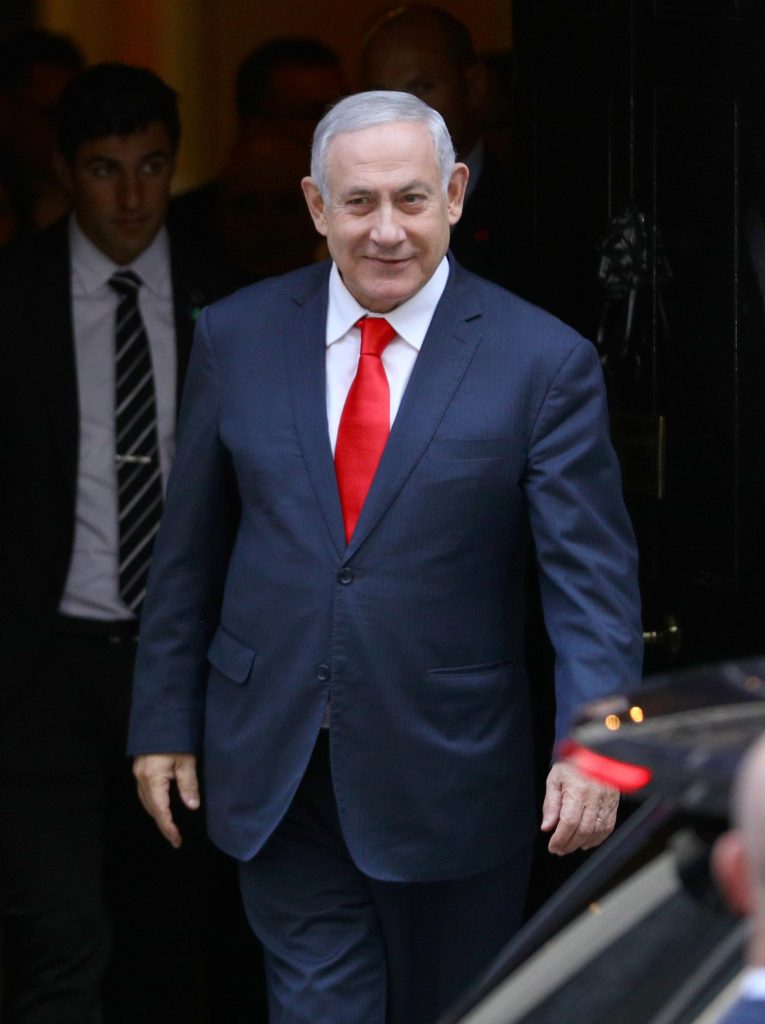Australia/Israel Review
Mergers, splits and deals in Israel’s poll run-up
Sep 30, 2022 | Amotz Asa-El

The dice – six of them – have been cast. With Israel’s 25th general election – the fifth poll in three and a half years – six weeks away, the 11 parties with viable chances of entering the Knesset have registered their final candidate lists following intense wheeling and dealing. Some improbable bedfellows have been brought together and some natural partners have been kept apart.
On the face of it, the protagonists in this partisan bargaining scramble were the smaller parties on both the left and the right, as the two largest parties, Opposition Leader Binyamin Netanyahu’s Likud and (acting) Prime Minister Yair Lapid’s Yesh Atid (“There is a Future”) have neither split up nor enlisted new allies.
However, as the road to the premiership for both men depends on the success of prospective coalition partners, they actively intervened in other parties’ negotiations, with Netanyahu proving more successful in these interventions than Lapid.
The centrist Lapid tried to persuade the left-wing Labor and Meretz to run jointly. Currently occupying a combined 13 of the Knesset’s 120 seats, polls suggest both parties are struggling to fully retain their voters, some of whom may prefer a larger party, mainly Lapid’s Yesh Atid, whose current 17 seats are forecast to swell to around 25.
Meretz leader Zehava Galon agreed to the merger idea, but Labor leader Merav Michaeli refused, even though the two women are known to be personal friends. Michaeli, the Transport Minister in the outgoing Government, said she believes both parties will cross the electoral threshold of 3.25%, and a joint ticket would actually leave them with fewer seats than running separately.
There is logic to her argument, considering that the two parties tried running jointly in 2020 and garnered a mere seven seats, about half of the total the two parties won running separately two years later. However, analysts believe Michaeli is driven less by this tactical argument and more by a long-term strategic quest to restore Labor’s long-lost role as a central player in Israeli politics.
Whatever her thinking, Michaeli turned down Lapid’s request.

Opposition Leader Binyamin Netanyahu has boosted his electoral chances by brokering deals among his political allies (Image: Alamy Stock Photo)
Meanwhile, at the opposite end of the political spectrum, Netanyahu managed to put out two fires among Likud’s satellite parties.
Unlike Lapid’s effort to create a new alliance, Netanyahu’s task was to prevent two existing alliances dissolving.
The first such threat came from the far-right Religious Zionism Party, whose junior component, Otzma Yehudit (“Jewish Power”), headed by ultra-nationalist provocateur Itamar Ben-Gvir, threatened to run separately from his party’s senior component, the National Union, headed by former transport minister Betzalel Smotrich.
Ben-Gvir, a former student of the late Rabbi Meir Kahane, whose party was outlawed for its racist platform before his 1990 assassination in New York, has earned a reputation as a provocateur since his teens. Now 46, Ben-Gvir is a lawyer who advocates expelling “disloyal” Arab citizens and likes to surface at Arab-Jewish flashpoints and feed on and exacerbate tensions that the security forces are trying to tamp down.
Encouraged by polls that indicated he could win up to nine seats, Ben-Gvir threatened to run independently if his party didn’t get to select half the united party’s candidates. Fearing such a breakup would leave one of its two halves outside the Knesset, thus wasting votes that could otherwise support a Netanyahu-led coalition, Netanyahu invited Ben-Gvir and Smotrich, separately, to his home in Caesarea. There, he brokered a deal to give Ben-Gvir half of the first ten candidates on Religious Zionism’s united electoral list.
Recognising Ben-Gvir’s status as a far-right firebrand on the margins of public legitimacy, Netanyahu avoided being photographed with him when Ben-Gvir visited his home. Nonetheless, Netanyahu’s efforts to deploy Ben-Gvir for his own political goals are clear – just as he paved the path for Ben-Gvir’s entry to the Knesset in the last election when he engineered the original union of far-right parties that became the Religious Zionism list, which also includes the anti-LGBTQI+ religious extremist faction Noam.
With his nationalist flank thus secured, Netanyahu turned to his ultra-Orthodox allies, where the United Torah Judaism party (UTJ), Likud’s strategic ally for 45 years, also seemed ready to split.
Established 110 years ago in Poland, the party was built as, and remains to this day, a loose alliance between Hassidic dynasties and anti-Hassidic ultra-Orthodox sages, all united by their rejection of secularism and strong opposition to Israel’s compulsory military draft being applied to their communities.
Anti-secularism is for them not only an abstract philosophy, but also implies a staunch refusal to teach secular subjects in the schools run by these communities. Under Israeli law, that means that these schools must make do with 55% of the per pupil state budget that is given to schools that do teach a core curriculum that includes English, science and maths.
However, earlier this year, one of the Hassidic communities, the Belz, reached a deal with the outgoing Government whereby its schools would begin teaching the core curriculum and receive government funding accordingly. For the anti-Hassidic factions of UTJ, this was considered intolerable, mainly because the Belz negotiated with the Government directly and independently, without the participation of other ultra-Orthodox groups.
Because of this dispute, the Hassidic and anti-Hassidic halves of UTJ were ready to run separately until Netanyahu entered the fray. He promised UTJ leaders that if he won power, he would grant all ultra-Orthodox schools the Education Ministry’s full budget allowance, regardless of what they teach or do not teach.
In addition to the small-party wheeling and dealing that involved Lapid and Netanyahu, there was also much manoeuvring in three other corners of the political system that unfolded without the involvement of either of the two.
On the far left, the Joint List alliance of three predominantly Arab parties has split, after its most radically anti-Zionist component Balad (an acronym for “the National Democratic Alliance”), seceded and decided to run independently due to disagreements over its share of candidates in the amalgamated list. At this writing, polls have yet to be conducted taking into account this development, but most pundits doubt Balad will receive enough votes to pass the electoral threshold.
On the other side of the spectrum, the right-wing Zionist Spirit party also broke up, as its hastily assembled alliance between two of the outgoing Government’s most hawkish ministers fell apart six weeks after their joint ticket was unveiled.
Headed by Interior Minister Ayelet Shaked, longtime ally of former Prime Minister Naftali Bennett – who is sitting out this election – Zionist Spirit was joined by Communications Minister Yoaz Hendel, who jumped ship from Justice Minister Gideon Saar’s New Hope party after the two reportedly didn’t get along.
Shaked and Hendel hoped to attract the so-called “soft right,” a nationalist but liberal electorate which is displeased with Netanyahu’s legal entanglements, and with his verbal broadsides against the judiciary and the media. The pair promised to push for a broad government that would include Likud, and thus prevent another premature election. Polls, however, suggested they were unlikely to cross the electoral threshold.
Shaked decided to announce that she would accept the prospect of entering a government headed by Netanyahu, despite his ongoing trial on corruption charges. This prompted Hendel, a journalist and historian, to bolt her party and announce he will not run in this election.
Part of the reason this union did not succeed is that the political position it tried to stake out – right-wing but unhappy with Netanyahu – is already largely occupied by Hendel’s previous ally, Gideon Saar.
For his part, Saar joined with Defence Minister Benny Gantz’s Blue and White party in July to form the National Unity party, and the pair was joined in August by Lt. Gen. (ret.) Gadi Eisenkot, who succeeded Gantz as IDF Chief of Staff, and before that served as Gantz’s deputy.
National Unity is currently predicted to win up to 15 seats. However, unlike the staunchly secularist Yesh Atid, which ultra-Orthodox leaders perceive as an enemy, Gantz has no bad blood with the rabbis and is also traditional in his personal life. This could become crucial if Netanyahu’s conservative alliance, despite all his efforts to shore up its various elements, ends up failing to gain a majority of 61 lawmakers – a realistic scenario according to polls.
Pundits suggest Netanyahu’s ultra-Orthodox allies will likely refuse to let him drag Israel into a sixth election within less than four years if the election again leads to stalemate between the pro- and anti-Netanyahu blocs. In such a case, these parties will likely seek to impose a unity government in which the top job will be rotated and Gantz would serve first as prime minister. He would then be succeeded by Likud’s leader two years later, by which point Netanyahu’s trial will hopefully have ended, one way or another.
If this scenario eventuates, it would mean that Netanyahu’s interventions to broker the internal affairs of other political parties, while remarkably effective, would ultimately have been for nought.
Tags: Binyamin Netanyahu, Elections, Israel, Yair Lapid






